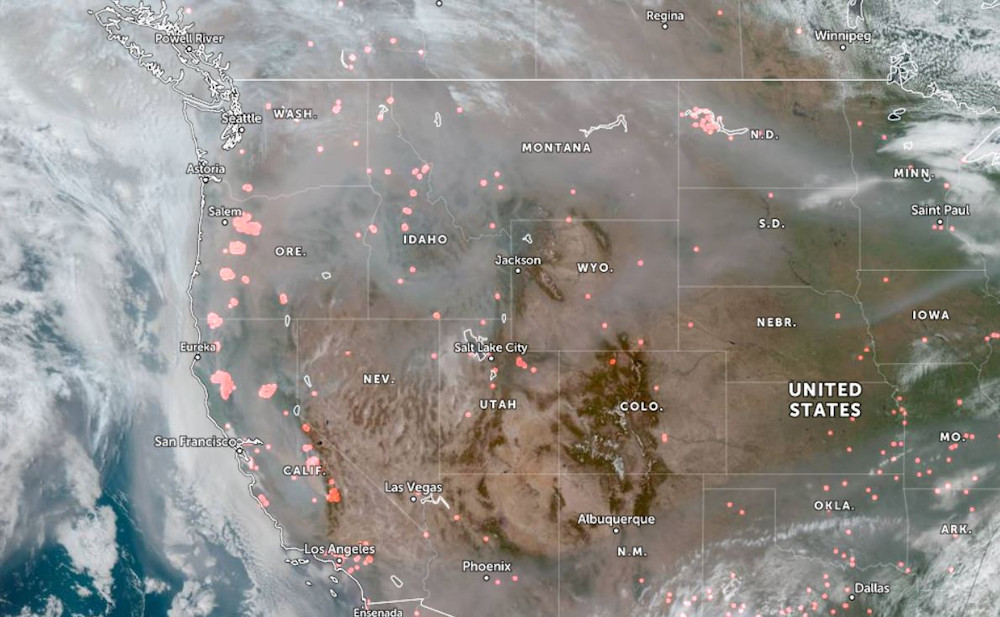If you are in or near California, Oregon, or Washington right now you are likely experiencing terrible air quality due to the devastating wildfires happening around the West. And if winds continue to build the smoke from those wildfires may spread across the country.

Photo: NASA
Inhaling wildfire smoke can not only irritate your eyes and respiratory system, it can also worsen asthma and chronic heart and lung diseases. With air quality indexes currently reaching the unhealthy and hazardous levels, it’s important for those who are able to safely stay inside, to do so. But, unfortunately, just staying indoors doesn’t mean your air quality is going to be great.
If you’re in an area where wildfire smoke is an issue, make sure you keep all your windows and doors closed and stay indoors as much as possible (yes, this is not good news for those of you doing school from home right now). The AirNow website can provide you with up-to-date info on the air quality in your neighborhood.
While stuck indoors you may also consider using an air purifier with a HEPA filter to help clean your air. And try not to add to any existing indoor air pollution - don’t burn candles or your fireplaces, postpone any vacuuming (unless you have one with a good filter), and don’t smoke anything indoors.
The EPA has also provided some suggestions on adjusting your HVAC system or air conditioner to keep smoke out:
“If you have a central HVAC system, find out if it has a fresh air intake. If it does, find out how to close it or turn the system to recirculate mode. Make sure the HVAC filter is in good condition, fits snugly in the filter slot, and is replaced as recommended by the manufacturer. Consider upgrading to a MERV 13 or higher rated filter if your system can accommodate it.
If you have a window air conditioner, find out how to close the outdoor air damper. If you cannot close the damper, consider preparing other cooling options like a fan. Make sure that the seal between the air conditioner and the window is as tight as possible.
If you have a portable air conditioner with a single hose, typically vented out of a window, do not use it in smoky conditions. Consider other cooling options like a fan or window air conditioner. If you have a portable air conditioner with two hoses, make sure that the seal between the window vent kit and the window is as tight as possible.”
Stay safe, everyone!